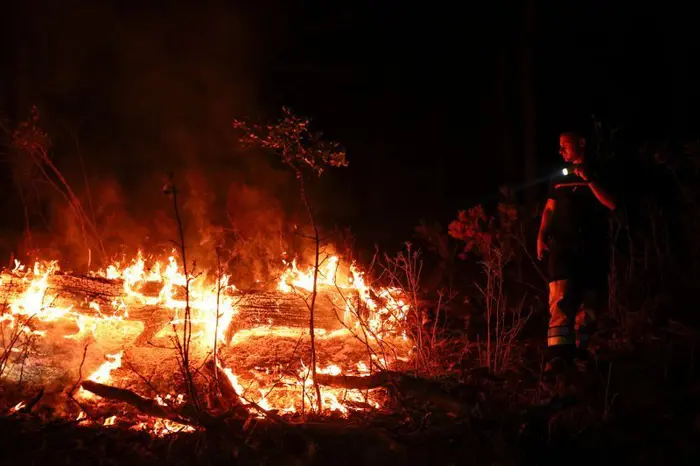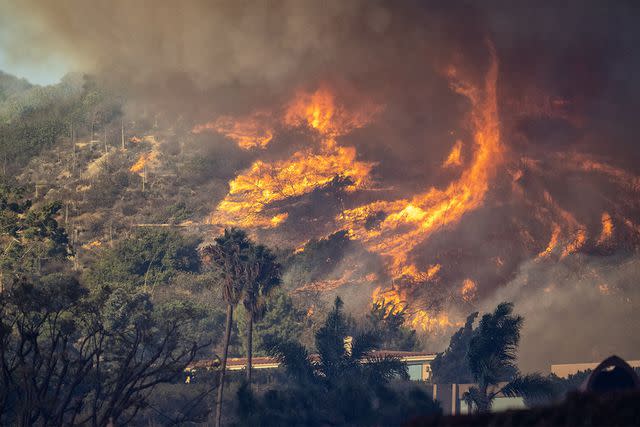SAINT-LAURENT-DE-LA-CABRERISSE, FRANCE – With heavy hearts and exhausted spirits, French firefighters continued their battle for a second consecutive day against a massive wildfire in the southern region of Aude — the largest blaze France has faced in nearly 80 years.
As the sun rose Thursday morning, plumes of thick, grey smoke continued to fill the skies, painting a grim picture over the once-vibrant forests now engulfed in flames. Over 16,000 hectares of land have been reduced to ashes. A life has been tragically lost, and entire ecosystems are under threat.
“For now, the fire remains out of control,” said Christophe Magny, one of the leaders coordinating the response, in an emotional interview with BFM TV. “We are doing everything we can.”
The wildfire began earlier this week near the Spanish border and is quickly advancing toward the Mediterranean Sea, consuming an area larger than Paris. It is, according to officials, France’s most devastating wildfire since 1949.
Families have been evacuated. Homes and businesses are on edge. Firefighters — many of whom have not slept in over 24 hours — are working tirelessly to defend both human life and natural habitats.
The cause? Experts point to a larger, more worrying trend. The Mediterranean climate is becoming increasingly hostile — hotter summers and drier conditions are creating the perfect storm for such destructive wildfires. Climate scientists warn that without drastic change, such disasters could become the norm, not the exception.
This isn’t just a story of flames. It’s a story of courage, resilience, and a growing call to action in the face of climate change.




